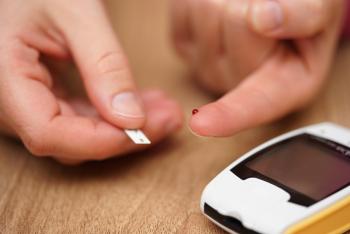Managing diabetes involves more than blood sugar control—it also requires diligent wound care to...
Read More
You're familiar with type 1 and type 2 diabetes, but what about the lesser-known type 1.5 diabetes?
This form of diabetes may account for up to 11 percent of all cases of adult-onset diabetes. However, it often gets misdiagnosed as type 2 diabetes.
An incorrect diagnosis can make it challenging to receive the appropriate treatment necessary to manage the disease and prevent complications.
Learn more about what type 1.5 diabetes is and how it differs from other types.
Type 1.5 diabetes, also known as latent autoimmune diabetes in adults (LADA), is a distinct form of diabetes that shares characteristics of both type 1 and type 2 diabetes.
“LADA is most closely related to type 1 diabetes, where the body attacks its own cells that produce insulin and help regulate blood sugar,” said Kristen Trom, D.O., a physician at Inspira Medical Group Primary Care. “People with LADA typically have antibodies associated with the autoimmune destruction of pancreatic beta cells, similar to those found in individuals with type 1 diabetes.”
However, LADA is difficult to diagnose due to its slow progression. It's typically identified later in life, often emerging in adulthood, similar to type 2 diabetes.
Initially, individuals with LADA may not require insulin treatment and may instead respond to oral medications typically used for type 2 diabetes—one of the primary reasons for its misdiagnosis. However, similar to type 1 patients, most individuals with LADA will eventually rely on insulin injections for the rest of their lives.
“Due to its unique traits, LADA is often mistaken for type 2 diabetes, especially in adults who don't fit the diagnosis criteria for type 1,” said Dr. Trom. “However, distinguishing between LADA and type 2 diabetes is crucial as treatment strategies differ and effective management helps prevent complications.”
Because both type 1 diabetes and LADA are autoimmune conditions, antibody testing is the first step in diagnosing LADA.
Treatment for LADA is personalized to each person's needs. Early interventions like lifestyle changes and oral medications can help at first, but most will need insulin later on. Regular blood sugar monitoring, medication adjustments and lifestyle changes are crucial for managing LADA and avoiding complications.
“Unlike certain forms of type 2 diabetes, LADA is neither reversible nor preventable, as it involves the autoimmune destruction of pancreatic beta cells,” said Dr. Trom. “However, you can take steps to minimize the risk of developing complications associated with the disease by maintaining a healthy lifestyle, including regular exercise, a balanced diet, maintaining a healthy weight and refraining from smoking.”
While LADA presents challenges in terms of diagnosis, treatment and management, understanding its characteristics and implementing personalized prevention and management strategies can empower individuals with LADA to effectively manage their condition and enhance their quality of life.
Inspira Primary Care can help you identify diabetes symptoms and seek treatment.

Managing diabetes involves more than blood sugar control—it also requires diligent wound care to...
Read More
Discover how high blood sugar impacts your body, from dental complications to kidney damage, and...
Read More
John Daddario, a lifelong resident of south Jersey was diagnosed with Type 2 diabetes so long ago he...
Read More